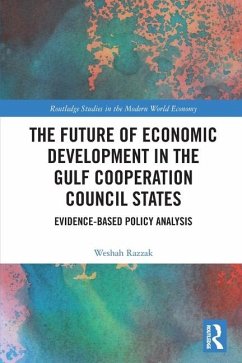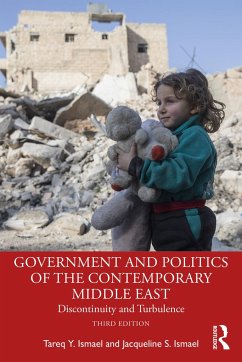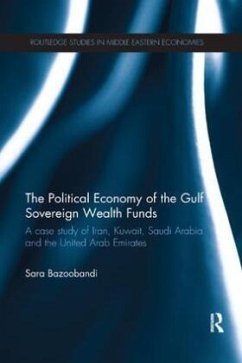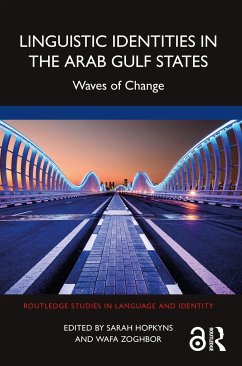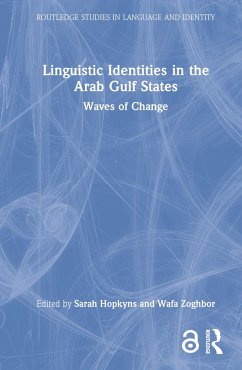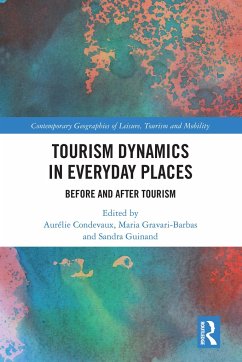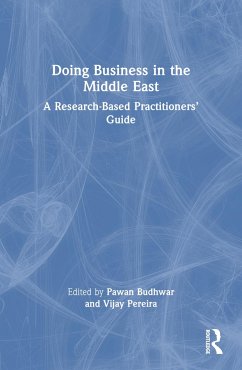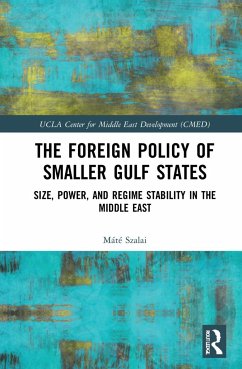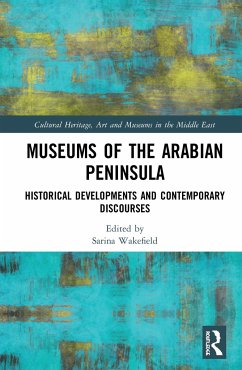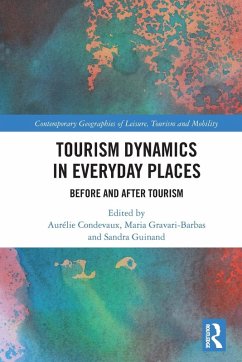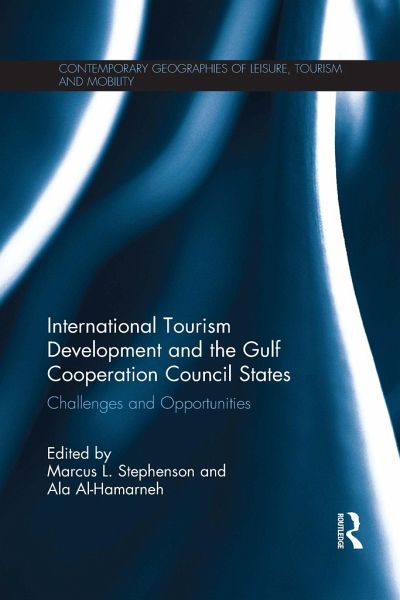
International Tourism Development and the Gulf Cooperation Council States
Challenges and Opportunities
Herausgegeben: Stephenson, Marcus L.; Al-Hamarneh, Ala

PAYBACK Punkte
23 °P sammeln!
This book examines the challenges facing the development of tourism in the six member states of the Gulf Cooperation Council (GCC): Bahrain, Kuwait, Oman, Qatar, Saudi Arabia and the United Arab Emirates (UAE). This region, which largely comprises the Arabian Peninsula, possesses some of the fastest growing economies in the world and is remarkably unique. It shares similar associations and affinities: tribal histories, royal kinship, political associations, Bedu cultural roots, Islamic heritage, rapid urbanization, oil wealth, rentier dynamics, state capitalist structures, migrant labour, econ...
This book examines the challenges facing the development of tourism in the six member states of the Gulf Cooperation Council (GCC): Bahrain, Kuwait, Oman, Qatar, Saudi Arabia and the United Arab Emirates (UAE). This region, which largely comprises the Arabian Peninsula, possesses some of the fastest growing economies in the world and is remarkably unique. It shares similar associations and affinities: tribal histories, royal kinship, political associations, Bedu cultural roots, Islamic heritage, rapid urbanization, oil wealth, rentier dynamics, state capitalist structures, migrant labour, economic diversification policies and institutional restructuring. Therefore, this volume takes the study of tourism away from its normative unit of analysis, where tourism in the region is being examined within the context of the Middle East and the wider Islamic and Arab world, towards an enquiry focusing on a specific geo-political territory and socially defined region.
Although international tourism development in the region embodies a range of challenges, complexities and conflicts, which are deeply contextualized in this volume, the approach overall does not endorse the normative 'Gulf bashing' position that has predominated within the critical enquiries in the region. It presents a forward-looking and realistic assessment of international tourism development, examining development potentialities and constructive ways forward for GCC states and the region as a whole. This edited volume provides a real attempt to examine critically ways in which tourism and its development intersect with the socio-cultural, economic, political, environmental and industrial change that is taking place in the region. By doing so, the book provides a theoretically engaged analysis of the social transformations and discourses that shape our contemporary understanding of tourism development within the GCC region. Moreover, it deciphers tourism development's role withinthe context of the GCC states undergoing rapid transformation, urbanization, ultra-modernization, internationalization and globalization. In addition to state-specific illustrations and destination case studies, the work provides insights into relatable themes associated with international tourism development in the region, such as tourism's relationship with religion, heritage and identity, the environment and sustainability, mobility and cross-border movements, the transport industry, image production and destination branding, mega-development and political stability and instability. The book combines theory with diverse case study illustrations, drawing on disciplinary knowledge from such fields as sociology, political economy and social geography.
This timely and original contribution is essential reading for students, researchers and academics in the field of tourism studies and related subject areas, along with those who have regional interests in Middle Eaststudies, including Gulf and Arabian Peninsula studies.
Although international tourism development in the region embodies a range of challenges, complexities and conflicts, which are deeply contextualized in this volume, the approach overall does not endorse the normative 'Gulf bashing' position that has predominated within the critical enquiries in the region. It presents a forward-looking and realistic assessment of international tourism development, examining development potentialities and constructive ways forward for GCC states and the region as a whole. This edited volume provides a real attempt to examine critically ways in which tourism and its development intersect with the socio-cultural, economic, political, environmental and industrial change that is taking place in the region. By doing so, the book provides a theoretically engaged analysis of the social transformations and discourses that shape our contemporary understanding of tourism development within the GCC region. Moreover, it deciphers tourism development's role withinthe context of the GCC states undergoing rapid transformation, urbanization, ultra-modernization, internationalization and globalization. In addition to state-specific illustrations and destination case studies, the work provides insights into relatable themes associated with international tourism development in the region, such as tourism's relationship with religion, heritage and identity, the environment and sustainability, mobility and cross-border movements, the transport industry, image production and destination branding, mega-development and political stability and instability. The book combines theory with diverse case study illustrations, drawing on disciplinary knowledge from such fields as sociology, political economy and social geography.
This timely and original contribution is essential reading for students, researchers and academics in the field of tourism studies and related subject areas, along with those who have regional interests in Middle Eaststudies, including Gulf and Arabian Peninsula studies.





